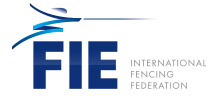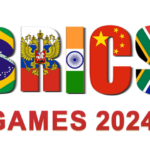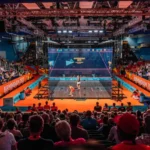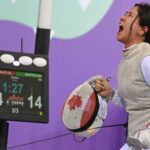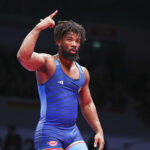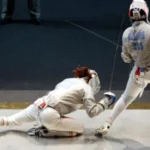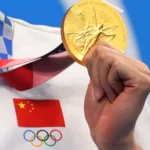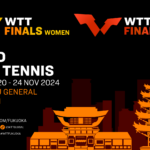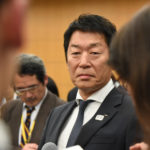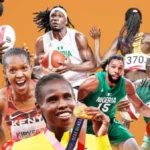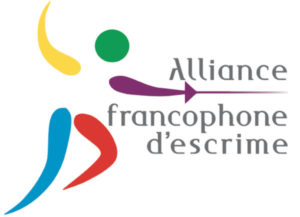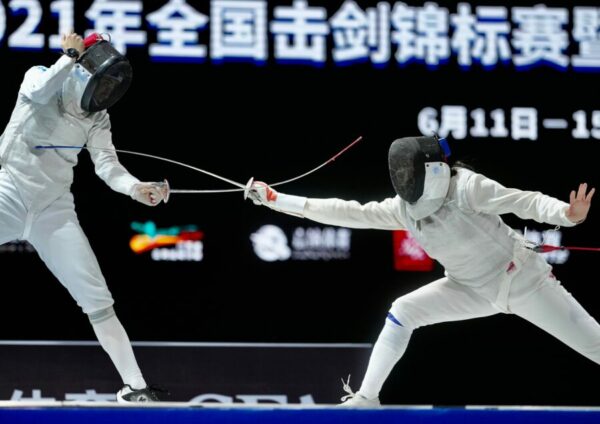
Experts recognize it: the future of fencing could well be played out in Asia. The continent displays development potential that is undoubtedly unique on the planet. Its best athletes continue to improve. The latest world championships, organized last year in Milan, provided further proof of this, with a 100% Asian podium in the men's team foil event. A first.
To talk about it, FrancsJeux asked Chinese Haibin Wang. President of the Chinese Fencing Federation, this former double Olympic team silver medalist (Sydney 2000 and Athens 20204) foil fencer sits on the FIE executive committee. He is the representative on the Coaching Council.
FrancsJeux : When and how did you start fencing?
Haibin Wang : I started fencing at the age of 11. At school. I then lived in the province of Jiangsu, of which Nanjing is the capital. It was 1984, the year of the Los Angeles Olympics. An edition of the Games marked by the victory of my compatriot Luan Jujie in the individual foil. Asia's first Olympic gold medal in fencing. Luan Jujie was a fencing coach in my town's club. In my school, many students wanted to take up fencing to follow in her footsteps. I was spotted in my school by the fencing coaches.
What was the situation of fencing in China when you started?
Fencing was then a very small sport, little known, not really popular, nothing comparable to table tennis, badminton or football. Many Chinese people didn't even know it existed. Since the pronunciation of the word fencing is the same in Chinese as the word construction, people to whom I told that I was a fencer thought that I worked in construction. Today everyone knows what fencing is.
Have the Beijing 2008 Olympic Games had an impact on the practice of fencing in China?
They have had an impact on all Olympic sports. The government had allocated significant resources to prepare for the Games and make them a success. All sports have benefited from it. In fencing, the Frenchman Christian Bauer was recruited to take care of the national sabre team. We won the gold medal in the individual sabre. Christian Bauer's popularity increased tenfold. Many children wanted to take up fencing. Before the 2008 Beijing Olympics, sport was primarily the business of the government, with variations in the provinces and cities. The athletes were civil servants. After the Games, private clubs developed. Sport has become everyone's business.
China organizes a lot of multi-sport events, Asian Games, World University Games, World Games... Do they make fencing better known to the Chinese public?
The organization of major multi-sport events, associated with economic development, has changed the image of sport and its practice. It is no longer just reserved for an elite of high-level athletes. The Chinese began to understand sporting activity as a factor of health and well-being. The middle class and young people, in particular, want to try different sporting activities, for pleasure, for leisure, without performance objectives. Today, we see young people aged 8 to 20 practicing fencing in private clubs, as amateurs.
What is the place of fencing in China today?
As with everything else, the COVID crisis has been a hindrance to practice and development. But for the year 2023, the first post-COVID, we organized 81 fencing tournaments, all age categories combined, throughout the country, in which a total of 29.238 competitors participated. Last year, China had 1290 clubs.
What is still missing in fencing to accelerate its development in China?
We are short of Chinese fencing coaches. China has recruited a lot of foreign coaches in recent years. They are very good and give us a lot. Frenchman Daniel Levavasseur, for example, led the national team. Today, he is based in Shanghai where he opened a fencing academy, Epée Levavasseur. All the coaches there are French! But we need to develop coaching programs for Chinese coaches. We also want to strengthen the presence of fencing at universities, drawing inspiration from the American model of the NCAA. Our sport is very associated with education. The university certainly represents the future of Chinese fencing.
How do you imagine fencing in your country in 10 or 20 years?
I imagine it as a high-end, elegant sport, mostly practiced by educated people. But, if we have to talk about figures, the dream would be to reach 500.000 fencers throughout the country. This may seem huge, and we are still a long way from it, but with the size of our population the goal is achievable.

